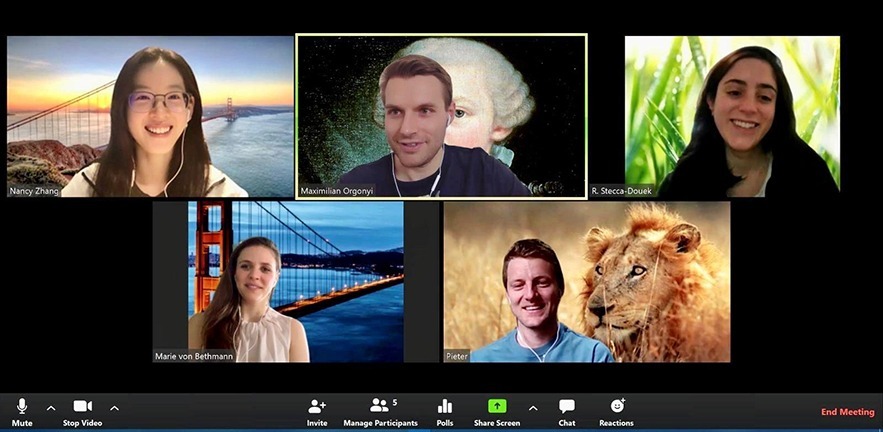Practical learning has never been more important during the current global pandemic. As the crisis peaked in April the Cambridge MBA class of 2019/20 formed 43 teams each working remotely with a global client on a ‘live’ consulting project.
We meet some of the teams and talk about their experience and challenges.
The Global Consulting Project (GCP) is seen as a highlight for many students on their Cambridge MBA year. The live consulting project comes at the end of the second or Lent term and allows students in small teams to put into practice their learnings from the core courses Management Praxis I & II, that run across the preceding terms. This core course, a cornerstone of the MBA curriculum at Cambridge, focuses on enhancing negotiation skills, alongside the study of leading high-performance teams.
While the circumstances for this year’s GCP were very different and precluded global travel and even face to face meetings in any capacity, the sector range and global diversity of projects and companies was no less interesting and varied: from WWF, the United Nations, and the World Health Organization to financial giants BlackRock and the London Stock Exchange. Working on a real live project at the outset of a global pandemic could not have been more challenging and yet more fascinating and inspirational at the same time. To be problem solving at a time of real crisis put skills learned during their MBA to the ultimate test.
We caught up with some of the teams at the conclusion of their Global Consulting Project, to discover what ‘real world impact’ they made.
BT UK
The BT UK team were 11,000 miles apart from each other, spread across the globe with an 18-hour time difference. The team tackled a cross-functional, multi-stakeholder piece of work with a focus on BT’s UK 2030 agenda and its enterprise strategy for market delivery.
The client expectations for the ‘Transforming Enterprise’ project were framed as; “Among other invaluable skills, the Cambridge MBA team brought fresh thinking to help us approach the challenge set out from another perspective; and an analytical, bold mindset that will help us truly think outside the box.”
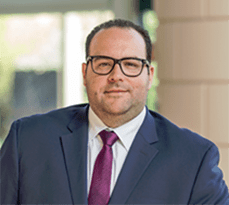
Simon Schwartz, himself now back in the USA, said, “The GCP experience, now entirely virtual, was really challenging but even more rewarding. Having to quickly grasp the nature of BT’s global and complex structure while working on a team across 18 hours of time zones was an invigorating adventure.”
“My experience on the GCP allowed me to explore completely new functions and business sectors, while working on a diverse team. I not only built lasting relationships with my team, but also learnt from them throughout the project.”
Teammate Akshar Mehta said; “Team BT as a client was fantastic and that passion and excitement soon rubbed off on the GCP team.
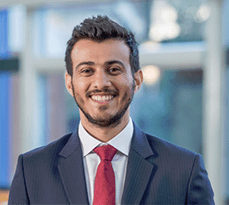
“Our GCP allowed us to put our classroom learning into a real-world situation. We learnt so much during our GCP period, especially various technical aspects of BT’s business. We could not have asked for a more supportive, engaging and enthusiastic set of people to work with at BT.
“What really made it special was how involved the BT team was, and that allowed us to have multiple presentations with different stakeholders across BT, sharing our ideas wider, even after our final report submission – including a special presentation to their senior Directors”.
WWF
Cambridge MBA students have a choice of GCP client projects developed by the MBA Business Development Team; they also have the option to source their own project. Previous self-sourced projects have included Sydney Opera House and Masawara & Udugu Institute in Zimbabwe.
Marie von Bethmann; “During Michaelmas Term, a group of us decided that we wanted to find a project that would allow us to achieve the maximum impact and engage in an effort that we believe is meaningful. As we shared a collective interest in conservation and development work, as well as Africa as a continent we reached out to numerous African conservation initiatives. In the end we decided to work with WWF as it was truly global and shared our own interests.”
One of the largest global conservation organisations, WWF is a UK based NGO. The project initially involved travel to Nairobi and Kenya, as well as London. The client objective was to relaunch and refresh an existing incentive scheme called ‘Wildlife Credits’ across parts of Africa, where rewarding communities for their conservation initiatives on the ground offset many of the costs and management required to conserve iconic and threatened wildlife.
Calling themselves the ‘Wild Dogs’ as a team, five of them working remotely and no longer all based in the UK. “Only one of us had visited Kenya before but the willingness of the WWF stakeholders to share their insights was a true highlight of the project”.
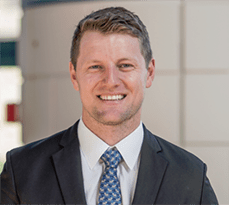
Pieter Daneel; “While it was a disappointment to not visit Kenya and meet the local communities in person, as WWF covers all continents it is well versed in working remotely. WWF shared their experience and tips for working successfully on virtual platforms.”
Keeping in touch was key; “In terms of project progress updates, we introduced update calls with key stakeholders twice a week and an end-of-week update. For local insights, we were successful in creating a close collaboration with the WWF team on the ground which allowed us to cover the local topics in tandem with them.
Peter continues – “With regards to building team and client relationships, we used simple means like a Zoom background picture and a sports challenge to develop connections. In meetings we also allowed extra time to catch up and chat informally to everyone involved.”
Marie says “The standout moment was our final presentation. It was great to see all our team insights coming together. All five of us, together with our Kenyan team member from WWF presenting, alongside 35 WWF stakeholders engaging in an exciting Q&A session.
“We realised that our work would have true meaning and have an impact on WWF and its people. As MBA students we often understand the commercial meaning of work but might sometimes underestimate the importance of the social impact and true meaning.”
LEGO
The project for LEGO, like BT UK, was also looking at a 10 year plus vision for the Company through its London Headquarters. While use of the LEGO offices was no longer possible during the lockdown period the team were able to reach the clients online and work tightly as a group of five remotely. The project focused on supply chain solutions in line with LEGO’s global growth strategy, working closely with the Supply Chain Innovation Team and the Innovation in Operation Team across the LEGO group.
The client from the outset recognised the importance of the Cambridge MBA skill set, requesting a strategic mind-set and ability to navigate in a fast-paced and ever-changing environment. The need to form strong working relationships quickly and at all levels and disciplines in the organisation was key, in this case remotely and through a technological interface only.
The Cambridge MBA Management Praxis core course enables the MBA student to thrive in a project-based, collaborative team environment.
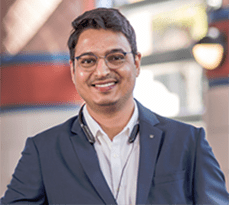
Saurabh Singh from the LEGO team took many takeaways from the experience, not least of which was some new learnings on remote working; “Stick to a daily schedule, prepare before each online meeting to get the maximum outcome, schedule meetings early in the day so there is time to analyse the data, divide teams to create workstreams with clear deliverables, and don’t just meet to work – as a team we would often have a few times in a day where we could just hang out!”
World Health Organization (WHO)
Working for the World Health Organization (WHO) was a huge honour during the time of the global pandemic.
The project outline focused on a joint initiative between WHO and the International Telecommunications Union to support Be Healthy, Be Mobile identifying potential digital health products, services and platforms to be included in a digital solutions repository for member states. The team also had the opportunity to analyse the COVID-19 pandemic as a case study, to conceptualise how to apply such a repository to various health issues and potentially to other Sustainable Development Goals (SDGs) outside of health, such as education.
While a proposed trip to WHO headquarters in Geneva was off the table, the team were quickly able to identify the client needs and scope out the steps of the project working remotely as a small team.
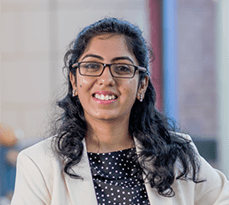
Akanshaa Khare described the experience; “As we continue to live and learn in these unprecedented times, I am grateful to CJBS and the World Health Organization for giving me an opportunity to conceptualise and strategise a digital health and innovation solution. Hoping this small contribution enables worldwide collaboration on healthcare to fight challenges such as COVID-19. A special thanks to our client at WHO for initiating this amazing project and giving us the opportunity and the guidance throughout.”
United Nations Defeat-NCD Partnership
Similarly engaging with a real live project at the United Nations Defeat-NCD Partnership, also based out of Geneva, Switzerland was a privilege for the Cambridge MBA in a world gripped by a deadly pandemic.
As the project focused on the regions of Rwanda and Myanmar to which travel was prevented, knowing the detail of the culture and environment in which their recommendations would be applied would be even more important from a distance. Clear and detailed communication with the client, not only to establish the parameters for the project but also what factors would come into play once any solutions were applied on the ground would be key.
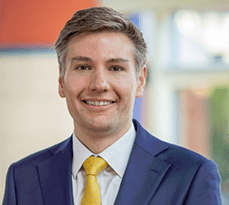
Robert Cann; “The purpose of the project was to evaluate the strategy to launch a venture capital fund focused on investing in initiatives to tackle non-communicable diseases in low- and middle-income countries.”
The skill set required by the Cambridge MBA team ranged from financial product knowledge and venture funding, as well as investment banking to law and contracts and public health financing.
Robert Cann continues; “The project, whilst challenging at times, was fascinating and a great development opportunity.”
Describing the project steps; “We took the project from its very earliest stages right through to the creation of an investor deck, all in four weeks, which we then presented to two investors. Along the way we conducted primary and secondary research into the startup ecosystems in Rwanda and Myanmar and local government policy.”
Robert concludes; “The project was really well received by the clients and has shaped how they are planning on developing the fund in the future.
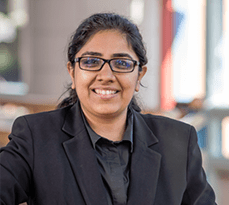
Sweta Adatia, herself with a medical background, described the experience as; “An amazing journey. The team was just the right mix of motivation, talent, and skill required for the project. Five team members aligned on three different time zones working with perfect co-ordination.”
She continues; “NCD has been a part of my life for 23 years now since the time I joined medicine, and what better way could I blend my MBA and deliver value to the client. We were supported by wonderful clients who enthusiastically participated throughout the project.”
She concludes; “It was a learning experience for us working through this time of COVID-19, but a great team effort overall.”
An extraordinary experience
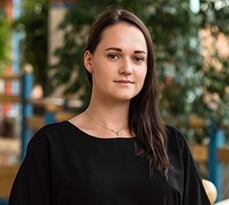
Katy Harrison, MBA Projects & Business Development Lead, describes this year’s extraordinary GCP experience; “Student and client feedback across the project timeline was very good overall. Our students learned how to work well as a team in a crisis, as well as learning to grow as an individual during the period.”
As an extra step this year, we asked and received client feedback part way through the project and shared this with the student teams, all working remotely. “The students received this well and said it was just the motivation they needed to continue working in such extraordinary times.” Creating open and continuous communication between client and consultant group was key to the success of both understanding the goals and delivering the client outcomes.
“The Class of 2019/20 learned to be agile and their collaboration and teamwork skills were put to the test”.
For the Cambridge MBA student learning to be agile, to pivot across fast changing environmental and economic circumstances, and to quickly assess and develop a plan for a problem, will be ever more in demand in the world post COVID-19.


